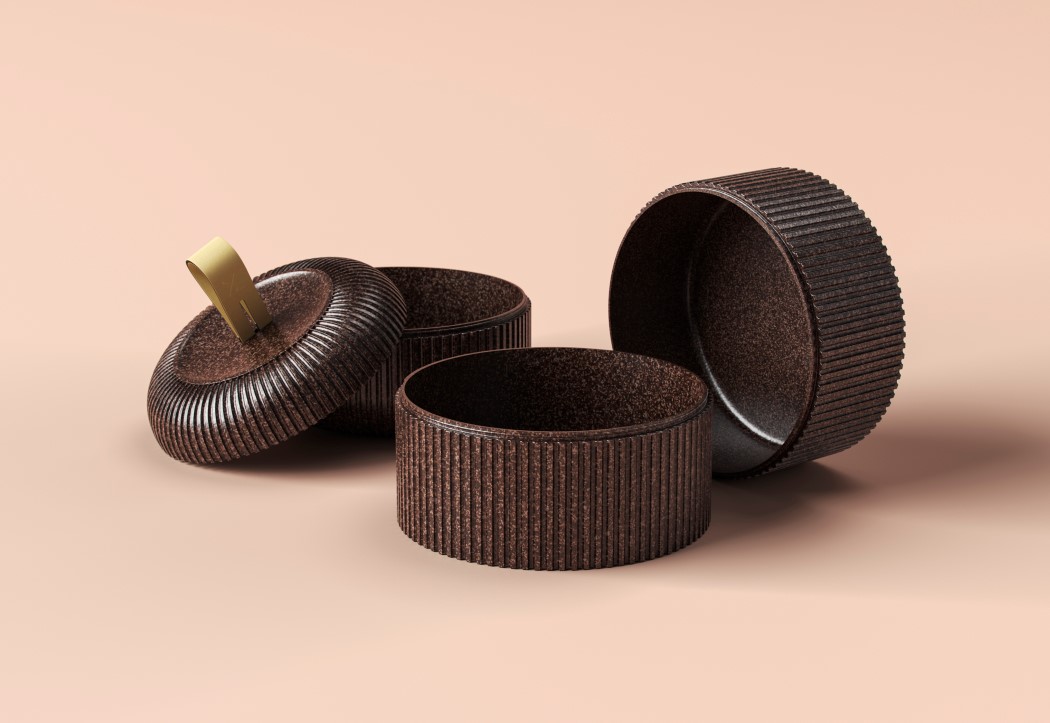
The food takeaway business is estimated to be a $53 billion-a-year industry and given the unique circumstances humanity is in, it’s probably set to grow even further at a rapid pace. PriestmanGoode aims at tackling the inherent problems within the takeaway culture with sustainable food packaging that’s molded from a bio-composite containing recycled cocoa bean waste.
Created as a part of the Wallpaper* Re-Made project, these bio-composite containers are modeled to look like bento-boxes with a modular design that stacks up as your order increases, resulting in one larger box rather than multiple smaller boxes. This unique format provides a useful alternative to plastic containers (as it’s waterproof and leakproof too) and eventually reduces components by removing elements like lids (since the containers stack over and cover each other). Materials used to craft the packaging meet a range of criteria too, being heatproof, lightweight, recyclable, and insulating. The bio-composite polymer used to mold the containers themselves are made from cocoa-bean shells (a by-product of the cacao industry) by designer Paula Nerlich. The outer bag that carries the containers is made from all-natural materials too, including mycelium to insulate the interiors, a bioplastic known as Nuatan to provide a robust outer shell, a natural leather derived from pineapple leaves called Piñatex for the outer container’s lid, and Lexcell, a neoprene-free natural rubber used for the handles and straps on the bag and the Bento containers.
PriestmanGoode’s design solution tackles the massive problem of single-use plastic packaging that’s plaguing our environments and oceans. It provides an all-natural, biodegradable solution to plastic boxes and cling-film wrappers, while also utilizing natural waste materials like cacao shells in the process. I’d argue that it looks a million times better too!
Designer: PriestmanGoode